Latest News
 Bulky waste recycling event set for Saturday
Bulky waste recycling event set for Saturday
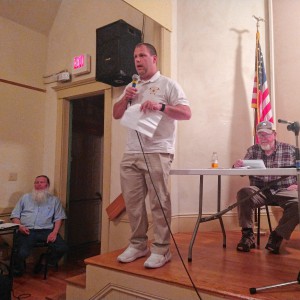 New fire engine gets nod at Warwick Town Meeting
New fire engine gets nod at Warwick Town Meeting
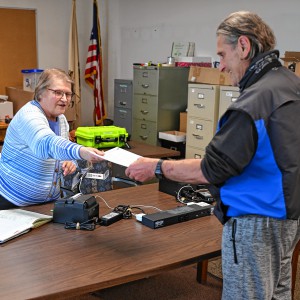 Erving voters say ‘no’ to $3.7M debt exclusion
Erving voters say ‘no’ to $3.7M debt exclusion

More than 130 arrested at pro-Palestinian protest at UMass
Editor’s note: This story will be updated.AMHERST — More than 130 people were arrested on the University of Massachusetts campus Tuesday night after those who set up a pro-Palestinian encampment on the South Lawn of the Student Union refused to...
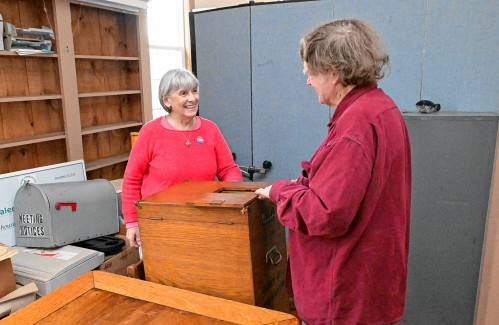
New Salem election ushers in new Selectboard member
NEW SALEM — The town has a new Selectboard member following Monday’s annual town election. Mailande DeWitt, a University of Connecticut School of Law graduate who currently serves as a New Salem Public Library trustee, will fill a two-year vacancy on...
Most Read
 Serious barn fire averted due to quick response in Shelburne
Serious barn fire averted due to quick response in Shelburne
 Bridge of Flowers in Shelburne Falls to open on plant sale day, May 11
Bridge of Flowers in Shelburne Falls to open on plant sale day, May 11
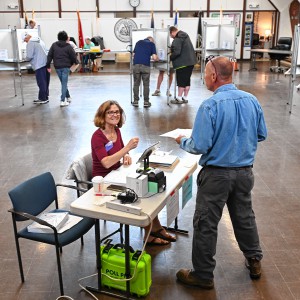 Political newcomer defeats Shores Ness for Deerfield Selectboard seat
Political newcomer defeats Shores Ness for Deerfield Selectboard seat
 Roundup: Pioneer baseball wins Suburban League West title following 2-0 win over Hopkins
Roundup: Pioneer baseball wins Suburban League West title following 2-0 win over Hopkins
 As I See It: Between Israel and Palestine: Which side should we be on, and why?
As I See It: Between Israel and Palestine: Which side should we be on, and why?
 Employee pay, real estate top Erving Town Meeting warrant
Employee pay, real estate top Erving Town Meeting warrant
Editors Picks
 On Mother’s Day, we’ll always have Paris: A crêpe recipe in honor of my French-speaking mother
On Mother’s Day, we’ll always have Paris: A crêpe recipe in honor of my French-speaking mother
 Montague Notebook: May 8, 2024
Montague Notebook: May 8, 2024
 Greenfield Notebook: May 8, 2024
Greenfield Notebook: May 8, 2024
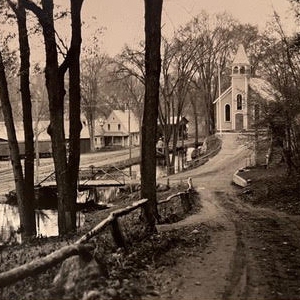 West County Notebook: May 8, 2024
West County Notebook: May 8, 2024
Sports

High Schools: MacKenzie Paulin tosses one-hitter to lift Greenfield softball past Frontier
Back in April, the Frontier softball team handed Greenfield its first and only loss of the season thus far.The Green Wave got their revenge on Tuesday. MacKenzie Paulin limited the Redhawks to one hit, striking out 11 and only walking two, helping...
 Bulletin Board: Bryce King wins Dean College men’s soccer’s Coaches Award
Bulletin Board: Bryce King wins Dean College men’s soccer’s Coaches Award
Opinion
My Turn: Freud — explorer of inner space
My mother often reminded me that “Fools rush in where angels fear to tread” — her words are one of those childhood memories that remain fixed in many a young brain, laid down in the synapses without our knowledge and long before we were capable of...
 My Turn: We all deserve a break
My Turn: We all deserve a break
 Guest columnist Gene Stamell: We know what we know
Guest columnist Gene Stamell: We know what we know
 Michelle Caruso: Questions candidate’s judgment after 1980s police training incident
Michelle Caruso: Questions candidate’s judgment after 1980s police training incident
 Kathy Sylvester: Vote for expertise on May 6
Kathy Sylvester: Vote for expertise on May 6

Business
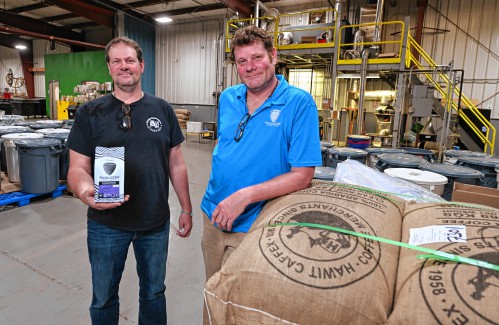
Fogbuster Coffee Works, formerly Pierce Brothers, celebrating 30 years in business
GREENFIELD — Three decades ago, Sean and Darren Pierce, two brothers in their mid-20s, decided to start selling coffee — a business venture that was funded by a roughly $30,000 mountain of credit card debt.Today, the Greenfield-based Fogbuster Coffee...
 Goddard finds ‘best location’ in Shelburne Falls with new Watermark Gallery space
Goddard finds ‘best location’ in Shelburne Falls with new Watermark Gallery space
 New buyer of Bernardston’s Windmill Motel looks to resell it, attorney says
New buyer of Bernardston’s Windmill Motel looks to resell it, attorney says
 New Realtor Association CEO looks to work collaboratively to maximize housing options
New Realtor Association CEO looks to work collaboratively to maximize housing options
 New owners look to build on Thomas Memorial Golf & Country Club’s strengths
New owners look to build on Thomas Memorial Golf & Country Club’s strengths
Arts & Life
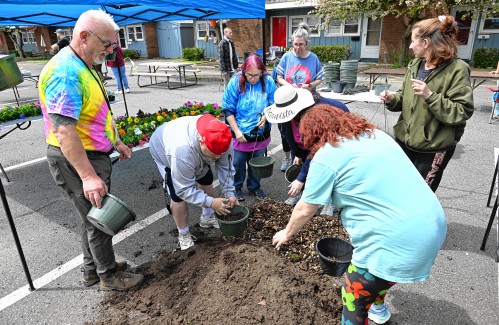
Providing opportunity for people to grow: The United Arc of Franklin County’s annual Gardening with Steve event a highlight of spring
Steve McConley credits his wife, Doreen, for his interest in growing plants. Doreen brought solid gardening skills to their union, and Steve appreciates her encouragement. The McConleys have a garden at their Bernardston home, and now Steve shares...
Obituaries
 Stephen Kozma
Stephen Kozma
Northfield, MA - Stephen Roy Kozma, 65, of Gill, Ma passed away unexpectedly at home on May 5, 2024. He was born in Greenfield, MA on Dec. 1, 1958 the eldest of five, to Stephen (deceased in 2014) and Marita (Bassett) Kozma.After gradua... remainder of obit for Stephen Kozma
 Stephen A. Clark
Stephen A. Clark
Greenfield, MA - Stephen A. Clark, 76, of Greenfield, Massachusetts died Saturday April 27, 2024 at home. He was born in Brattleboro, VT on December 1, 1947, the son of Lloyd and Elizabeth (Rounds) Clark. Stephen was a graduate of Green... remainder of obit for Stephen A. Clark
 Richard Powers
Richard Powers
Richard "Dick" Powers Northfield, MA - On May 2, 2024 Richard "Dick" "Dickie" Powers, 79, passed away at the home of his daughter, with his daughters by his side, following a long battle with vascular and frontotemporal dementia. He was ... remainder of obit for Richard Powers
 Edwin J. Nartowicz
Edwin J. Nartowicz
Northampton, MA - Edwin J. Nartowicz, 100, of Northampton, passed away on Thursday, April 25, 2024, surrounded by his loving family at Cooley Dickinson Hospital. He was born in South Deerfield on November 7, 1923, to the late John and A... remainder of obit for Edwin J. Nartowicz

 Streetlight proposal gets unanimous approval in Shelburne
Streetlight proposal gets unanimous approval in Shelburne
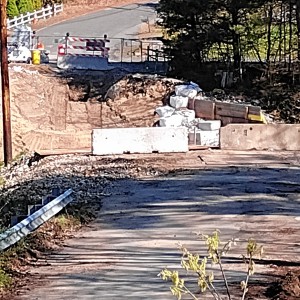 Work on Pinedale Avenue Bridge connecting Athol and Orange to resume
Work on Pinedale Avenue Bridge connecting Athol and Orange to resume
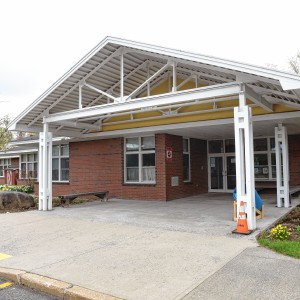 Pair of public servants vying for Selectboard seat in Heath
Pair of public servants vying for Selectboard seat in Heath
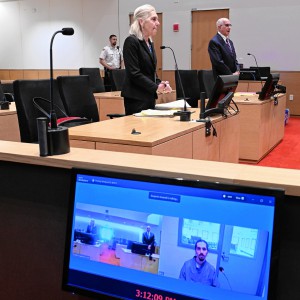 Lawyer argues Joshua Hart’s 2018 conviction for Orange murder had inconsistent verdicts
Lawyer argues Joshua Hart’s 2018 conviction for Orange murder had inconsistent verdicts
 South County Senior Center opts not to renew church lease after rift over LGBTQ program
South County Senior Center opts not to renew church lease after rift over LGBTQ program
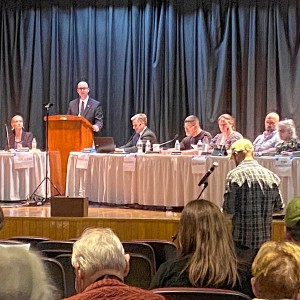 Moratoriums on large-scale solar, battery storage passed in Northfield
Moratoriums on large-scale solar, battery storage passed in Northfield
 Boys volleyball: Carey twins help power Frontier past Belchertown in straight sets (PHOTOS)
Boys volleyball: Carey twins help power Frontier past Belchertown in straight sets (PHOTOS) Baseball: Logan Moore holds Smith Academy to one hit in Mohawk Trail’s 1-0 victory (PHOTOS)
Baseball: Logan Moore holds Smith Academy to one hit in Mohawk Trail’s 1-0 victory (PHOTOS) Swayman stops 38 shots, Bruins roll past Panthers 5-1 for 1-0 series lead
Swayman stops 38 shots, Bruins roll past Panthers 5-1 for 1-0 series lead Speaking of Nature: Capturing my Bermuda nemesis: The Great Kiskadee nearly evaded me, until I followed its song
Speaking of Nature: Capturing my Bermuda nemesis: The Great Kiskadee nearly evaded me, until I followed its song The house that therapy built: Multimedia artist Lisa Winter to display “My House” at the Wendell Meetinghouse this Sunday
The house that therapy built: Multimedia artist Lisa Winter to display “My House” at the Wendell Meetinghouse this Sunday Fun Fest returns to Turners Falls: Música Franklin hosts 6th annual family-friendly, free event, May 11
Fun Fest returns to Turners Falls: Música Franklin hosts 6th annual family-friendly, free event, May 11 Valley Bounty: Delivering local food onto students’ plates: Marty’s Local connects farms to businesses
Valley Bounty: Delivering local food onto students’ plates: Marty’s Local connects farms to businesses
